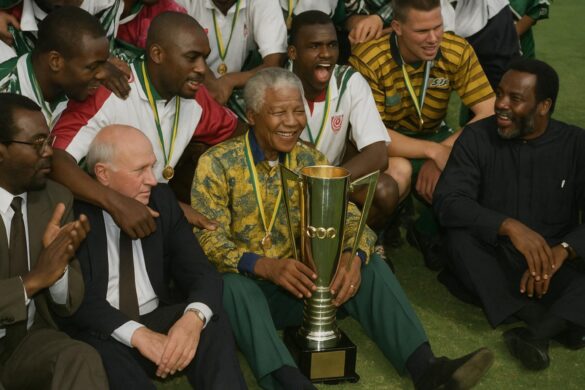From Khhartoum to a Continental Showcase
The Africa Cup of Nations was born in February 1957, when Egypt, Sudan, and Ethiopia gathered in Khartoum under a brand new Confederation of African Football. As the Pharaohs lifted the inaugural trophy, the competition offered a new sporting voice for newly independent nations.
During the 1960s, the tournament carried political symbolism, illustrating aspirations for unity and self-determination. Fans filled modest stadiums, radios crackled in villages, and every goal felt like a declaration that Africa could write its own sporting story.
Expansion and the TV Boom
Growing interest led to format changes: six teams in 1963, eight from 1968 onwards, and – crucially – the first televised edition in Sudan in 1970. Images of talented attackers and enthusiastic crowds traveled beyond borders, cementing AFCON as the continent’s shared festival.
Further growth followed with Senegal 1992 featuring 12 participants, South Africa 1996 with 16, and Egypt 2019 with a record 24 teams. Each expansion broadened opportunities while preserving the drama that makes knockout football irresistible.
The Scorers Who Lit Up the Scoreboards
No scorer better embodies the tournament’s fireworks than Samuel Eto’o. Between 2000 and 2010, the Cameroonian netted 18 goals in the finals, averaging a goal every two games and guiding the Indomitable Lions to consecutive titles in 2000 and 2002.
Decades earlier, Ivorian icon Laurent Pokou dazzled Addis Ababa with eight goals in 1970, including five goals in a single match against Ethiopia – a record that still stands. Pierre Ndaye Mulamba’s nine-goal haul for Zaire in 1974 remains the best performance in a single edition.
Masters on the Sideline
Ghanaian tactician Charles K. Gyamfi set a benchmark with three titles in the 1960s, a feat later matched by Egyptian Hassan Shehata during the Pharaohs’ golden run from 2006 to 2010.
Few coaches know the continental stage like Claude Le Roy, who managed nine different national teams in the finals. Frenchman Hervé Renard joined the elite club of winners with two different nations by guiding Zambia in 2012 and Ivory Coast in 2015, highlighting the tactical depth that now shapes African dugouts.
Dynasties Forged in Gold
Egypt stands apart with seven trophies, including three consecutive triumphs that captivated fans in Cairo, Accra, and Luanda. Veteran goalkeeper Essam El-Hadary, who played at 44, became the competition’s oldest participant while winning a fourth personal title.
Ghana’s Black Stars reached every final between 1963 and 1970, winning three. Cameroon replicated that dominance at the turn of the millennium, and Ivory Coast cemented its reputation in nail-biting penalty shootouts, winning on penalties in 1992 and 2015.
Finals Etched in Collective Memory
The 1992 final in Dakar lasted
